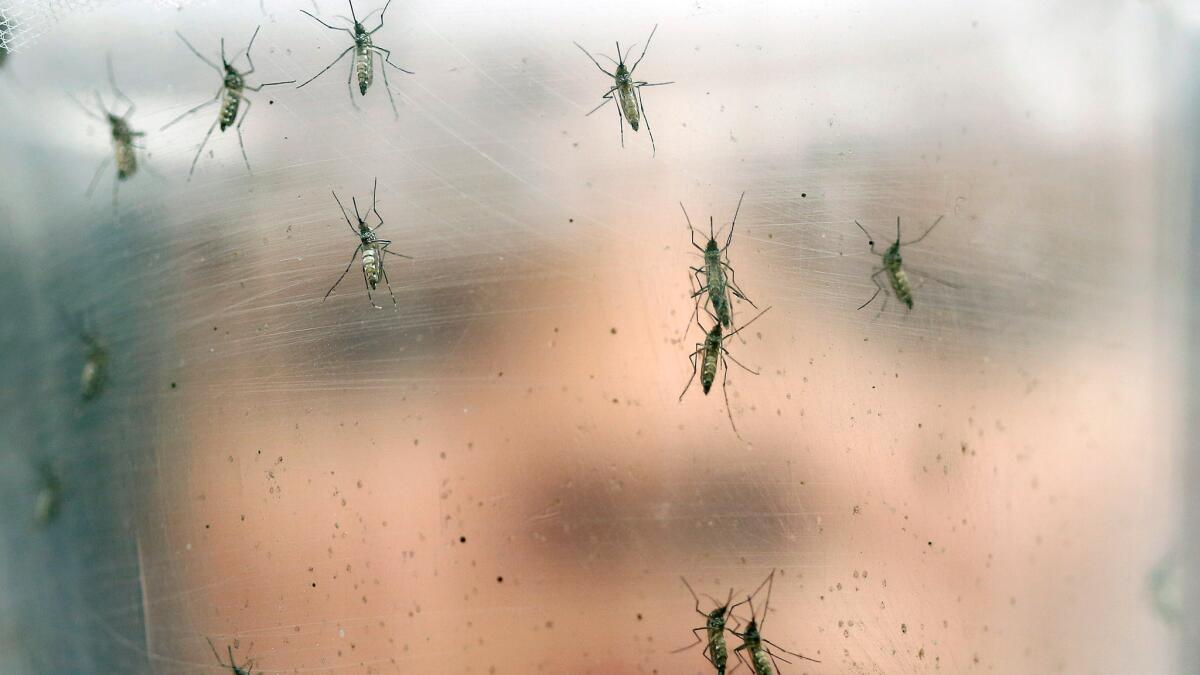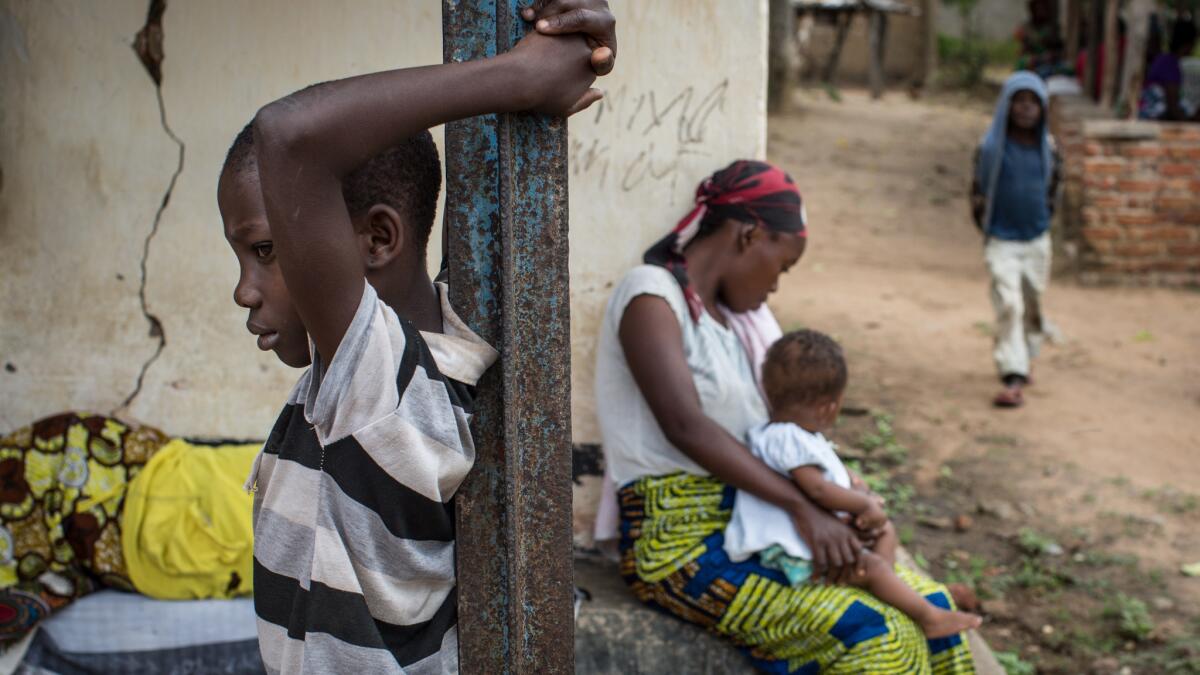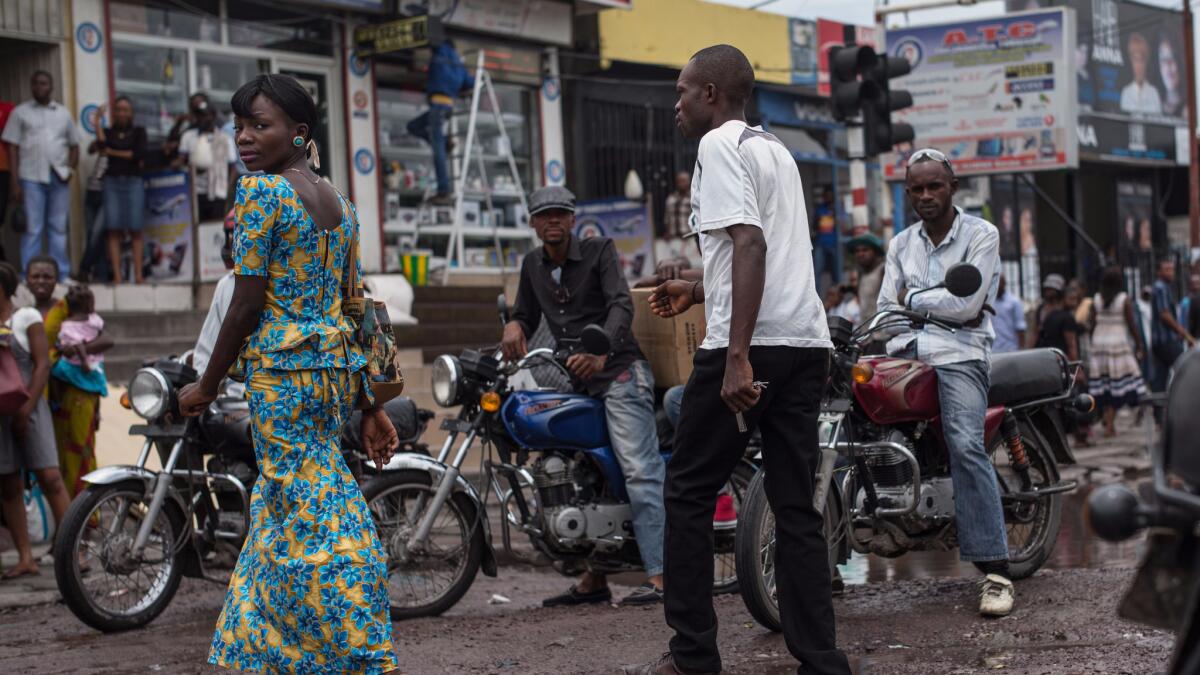The WHO faces a limited vaccine supply as the worst yellow fever outbreak in decades hits Africa

- Share via
Faced with the worst yellow fever outbreak in parts of Africa in decades and running low on vaccine, the World Health Organization plans to use only fractional doses of the vaccine in some areas when it launches an emergency immunization campaign in July.
Health experts hope that by using smaller doses they can stretch the limited vaccine supply and slow the spread of the virus.
Even in smaller doses — 1/5th the normal dose, in the upcoming campaign — the vaccine still provides full immunity for at least 12 months, health officials say.
WHO spokeswoman Sarah Cumberland said in an email that fractional dosing is being considered at this stage only for Kinshasa, the Congolese capital that is home to more than 10 million people.

“The outbreak is still in early stages and it could be an effective way of containing spread with the vaccine doses available,” Cumberland said. “Logistical considerations, such as obtaining suitable syringes and training health workers in this method, mean that dose-fractioning may be easier to implement in an urban setting.”
The other areas targeted are a 47- to 62-mile belt spanning the border between the Democratic Republic of Congo and Angola, where the disease first emerged in December, and high-risk inland areas associated with local mining areas and big markets that attract large migrant populations and movement of people to and from Angola, the WHO said.
“If we don’t respond fast, this has the potential to be a big outbreak with the risk of international spread,” Cumberland said. “The focus is on getting this under control as fast as possible.”
The use of fractional dosing is significant because such a tactic “should only be used in response to an emergency situation in which current vaccine supply is insufficient,” Cumberland said. This would mark the first time that fractional dosing has been used to combat yellow fever, she said.
Daniel Lucey, an immunologist at the Georgetown University’s O’Neill Institute for National and Global Health Law, said the move “underscores the severity of the situation … and it doesn’t bode well for what is a potentially worse situation that we’re going to be in, in future.”
Angola reported 3,294 suspected cases and 347 deaths from the virus, according to the WHO’s latest statistics, while Congo had 1,106 suspected cases and 75 deaths.
Distribution of the vaccine would focus on “districts where there is high movement of people and intense trade activities, particularly the northern border districts of Angola and targeted border districts in neighboring countries,” the WHO said in a recent statement. The aim is to create an immunity wall.
Already yellow fever cases linked to the Angola outbreak have been reported in China, Kenya and Congo, the WHO said.
The disease is transmitted by Aedes aegypti mosquitoes, which also carry dengue fever and the Zika virus, and causes high temperatures, jaundice, bleeding and eventually shock and multiple organ-failure in patients with severe infection. It can be fatal.
There is no cure for yellow fever, making prevention critical. But providing treatment for those in areas currently affected by the disease has been challenging because of the lack of the vaccine.
The global stockpile of 6 million doses has been depleted three times since the start of the outbreak in December, Cumberland said. Angola has received 15 million vaccines, 3 million doses have gone to Congo and 800,000 to Uganda, which is experiencing a bout of yellow fever unrelated to the cases in Angola.
Although the stockpile has been replenished to 5 million doses, demand could quickly outstrip supply, Cumberland said.
She said yellow fever has the potential to spread fast in urban settings, particularly when breeding conditions are favorable for the mosquito.

Lucey, the Georgetown immunologist, said the yellow fever threat to Kinshasa should have been anticipated.
“Now I’m worried about the virus spreading to the Republic of Congo and Brazzaville,” Lucey said. “Mosquitoes don’t know where to stop.”
Brazzaville, the capital of the Republic of Congo, can be seen across the Congo River from Kinshasa.
Lucey also warned of the possible spread of yellow fever to Asia, where there has never been an outbreak but where Aedes mosquitoes are common in places such as India, Malaysia, Indonesia, Vietnam, Thailand and southern China. An Aedes mosquito that bites a person infected with yellow fever can transmit the virus to someone else, Lucey said.
Several humanitarian organizations have mobilized to try to contain the virus in Angola and the Democratic Republic of Congo. The International Federation of Red Cross and Red Crescent Societies said this month that given the limited supply of the vaccine — which is the first and best line of defense — it would be best to conduct community outreach to help curb the spread of the disease.
Local Red Cross staff and volunteers were conducting door-to-door visits instructing people on how to reduce their risk of falling ill with yellow fever, such as eliminating sites where mosquitoes can breed, the organization said. Teams were also assessing how to improve community surveillance and vector control, and addressing rumors that are spreading about the disease and vaccinations, the Red Cross said.
Meanwhile, the medical humanitarian group Doctors without Borders has been undertaking mass vaccination and mosquito control efforts in certain affected areas of the Democratic Republic of Congo and providing diagnoses and treatment of patients in Angola.
For more on global development news follow me @AMSimmons1 on Twitter
ALSO
At least 41 killed in suicide attack at Istanbul airport, officials say
Merkel warns British against ‘deluding themselves’ in departure from EU
Former CIA officer could go to jail for a notorious ‘rendition’ case
More to Read
Sign up for Essential California
The most important California stories and recommendations in your inbox every morning.
You may occasionally receive promotional content from the Los Angeles Times.














